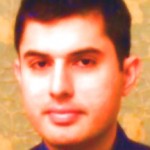
Farewell Space Shuttle Atlantis, thanks for the dreams
The end of the program is a great loss. It brings an end to global experiences that will no longer spark curiosity.
The Space Shuttle Atlantis is about to embark on its final mission. The mission will bring to an end three decades of space travel, exploration, experimentation and innovation.
Space travel taps into one of the most basic and perhaps most valuable of human qualities, curiosity. For someone growing up in Pakistan during the 1990s, Space Shuttle launches in Florida were as distant as space itself. They were brought a little bit closer by NTM when it first started broadcasting a few hours of CNN and BBC a day. One of my first experiences of following the 24 hour “Breaking News” was the Space Shuttle mission to repair the faulty solar panels and mirror on the Hubble Space telescope.
During the 1990s Jinnah Stadium Islamabad used to host a science and technology exhibition (though I can’t recall if that is what it was called) each year. It was amazing!
So many different stalls related to what was then cutting edge technology and discovery. I distinctly remember the SUPARCO stall which had a satellite developed by Pakistan, along with pictures of Pakistani indigenous space efforts and in cooperation with other countries.
There were also images, documents and findings of SUPARCO’s and National Institute of Oceanography’s Antarctic Research program. If I remember correctly there was an enthusiastic SUPARCO or NIO official giving a presentation on the setting up of the Jinnah Antarctic Station.
That was the key really. The enthusiasm of the officials manning these stalls was contagious, or at least I caught something. Perhaps most importantly the exhibition was inclusive and accessible. They were children and young people there from different schools, colleges, universities and madrassas. I would imagine that a similar event today would be barricaded behind layers of security and at a much smaller scale.
Post 9/11 space exploration appeared to have fallen victim to the popular narrative happily perpetuated throughout the country. From Neil Armstrong hearing the azaan on the moon to members of the clergy declaring going into space un-Islamic because one would not be able to hear the azaan, science fact has been replaced by a cynical science fiction. Perhaps the most cynical politicisation of space travel was on the occasion of the Columbia Space Shuttle disaster after which Saddam Hussain declared that this was a sign from God to the US people that they will be unsuccessful if America invaded Iraq.
Caught up in terrorism, economic problems and bouts of political instability in Pakistan, many would argue that we have neither the resources or time to focus on topics such as space exploration.
I believe that it is very important for us to make the time and divert some resources to inspire today’s children and young people. May it be space, earth sciences, oceanography or technology; we must offer children today a future of limitless possibilities, rather than one where mere survival is seen as a victory. Not everyone becomes an astronaut or an astrophysicist, but exposure to events and occasions helps stimulate interest and inspire individuals.
The end of the Space Shuttle program is a great loss. Its demise brings an end to iconic images and global experiences that will sadly no longer spark curiosity or inspiration.
Let’s just hope that curiosity in everything beyond our atmosphere never diminishes. After all in the great nothingness of space, you and I are infinitely insignificant. Perhaps if we all began to appreciate how valuable, vulnerable and fragile our existence in the cosmos is, we would value each other and ourselves a little bit more.




COMMENTS (6)
The US space exploration program may have ended but the journey in to deep space will continue. Private companies like Richard Branson's have already taken up where the government left off:http://tribune.com.pk/story/183864/a-star-is-launched/
Comments are moderated and generally will be posted if they are on-topic and not abusive.
For more information, please see our Comments FAQ